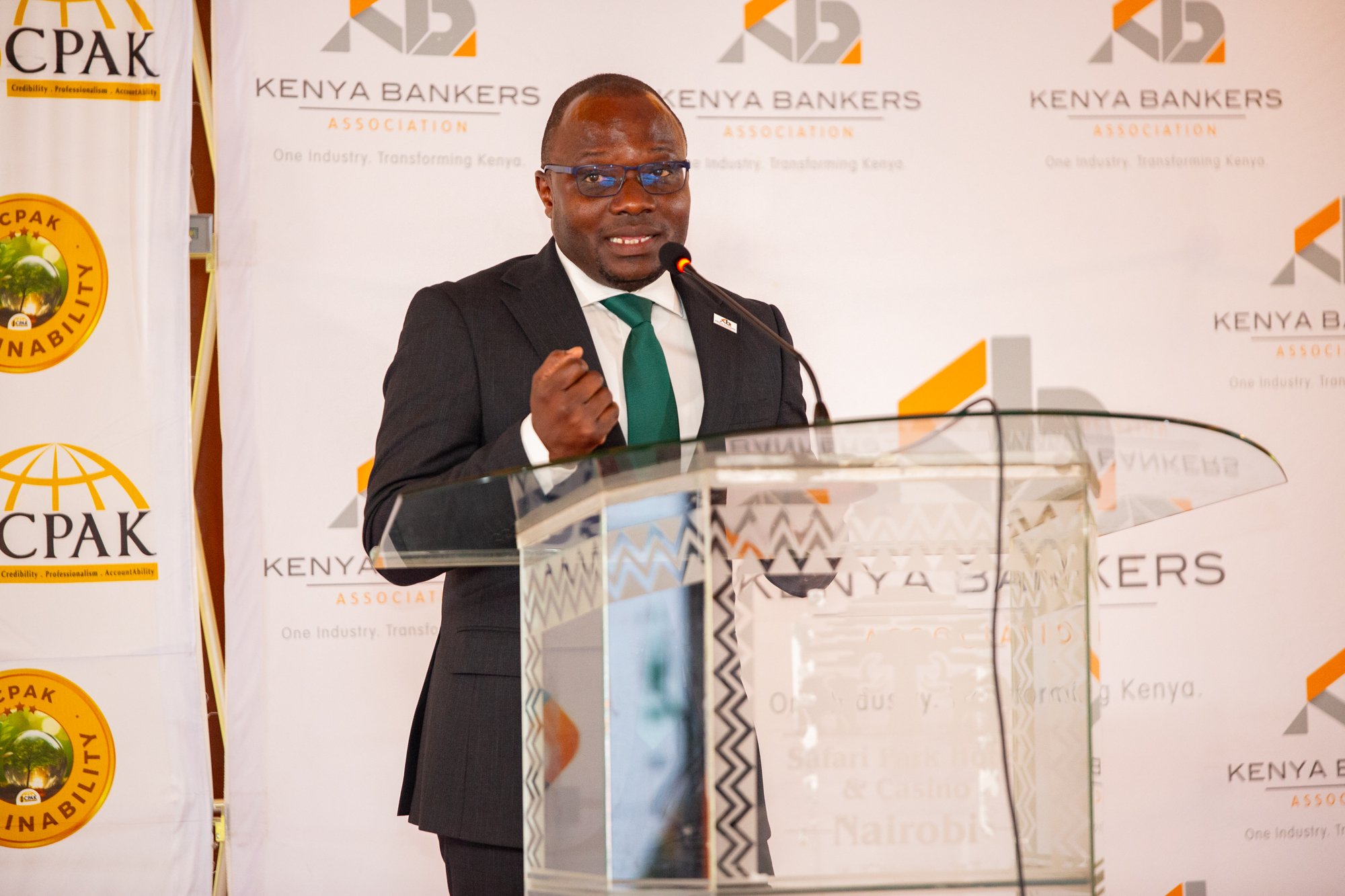
Banks will be required to provide extra data on their operations and lending as the the industry moves to adopt new reporting standards.
The Kenya Bankers Association and the Institute of Certified Public Accountants of Kenya (ICPAK) are pushing for the disclosures under International Financial Reporting Standards (IFRS) S1 and S2.
The new reporting framework under IFRS S1 and S2 seeks to bridge long-standing gaps in green financing and enhance access to climate-related funding across the economy.
KBA CEO Raimond Molenje said that the new template equips financial institutions to align with global benchmarks, enhance decision-making, and unlock opportunities in the transition to a low-carbon and socially inclusive economy.
“The initiative is also set to improve loan pricing and credit flow to the private sector, an area that has seen zero growth in the past year according to Central Bank figures,” said Molenje.
He said that by adopting a new reporting template, Kenya’s banking sector will be international competitive as they prepare for mandatory regulations expected by 2027.
“By aligning loan assessments with sustainability data, we can offer more affordable and targeted financing solutions,” he said.
KBA noted that the lack of consistent data has historically held back green lending.
The new reporting template is set to fix that, offering reliable data that banks can use to better assess clients and direct funding to projects that are both green and economically viable.
“One of the critical challenges addressed by the framework is de-risking investments, especially in agriculture. With climate risks often deterring lenders, the standardised data approach will help banks better measure and manage these risks.” Molenje noted.
FSD Kenya CEO Tamara Cook said that the initiative is not just about identifying climate risks but also unlocking the opportunities that green financing presents—especially for sectors like agriculture, small businesses, and communities vulnerable to climate change.
"Without good, comparable data, it’s hard to direct money to the right projects or measure progress in building a greener, more resilient economy and, above all, make data-driven decisions," said Cook.
The ICPAK CEO, Grace Kamau, said that the unveiling of the IFRS S1 and S2 disclosures template for banks is a significant stride toward enhancing consistency, comparability, and credibility in sustainability-related financial disclosures.
Head of Conservation Programmes at WWF-Kenya, Jackson Kiplagat, said that the IFRS S1 and S2 standards present a real opportunity to help investors and businesses recognize the material risks of environmental degradation, to steer finance towards low-carbon, nature-positive solutions, and to align Kenya’s economy with its climate goals.








